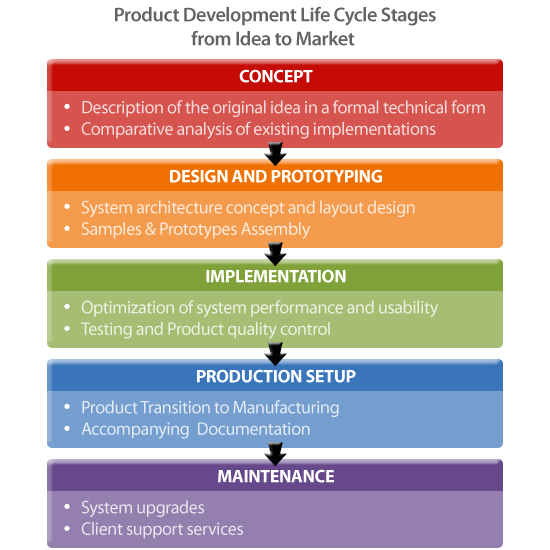Everything starts with an Idea. It’s the ideas that push us forward and give way to our potential and talent. Good ideas can change the world around us or at least give a start to an outstanding software product. But the question is “Where can we draw our inspiration from to come up with the IDEA?” Moreover, the Idea has to be urgent and in demand later on. First of all, a moment should be taken to look around and to give some thought to what needs to be changed, improved or eliminated. Secondly, there are always people around whose work can be spied upon for possible drawbacks and faults while working on their computers. Having followed this tactic there is a strong possibility to abridge the operation to just a few clicks or introduce any other solution aimed at making everyday life quicker and simpler.
Nevertheless, a balanced idea and a strong motivation are hardly enough to build a sound software product. As Ricardo D. Sanchez (a software engineer and a famous blogger) puts it: “There is no doubt that hiring tech talent is one of the most difficult tasks for startups.” There’s no denying the fact that skillful professionals and experts who know their trade play the key role in the product development process. Software product development process is a crucial procedure of implementing a series of features designed to face the requirements of a specific market segment. It results into tangible changes and significant advancement for companies. The keyprinciples of a software product development process are to meet clients’ requirements and execute the challenge in a professional and efficient way. Any product development process should satisfy at least two requirements: guarantee reduced time to market and build an effective software product able to advance its clients in the market and make their business thrive.
At the next phase it is time to work out a strategy and assess the tools that will be needed to implement the project. It is of great importance to define whether you have all necessary skills and knowledge at your disposal. The development of an excellent software product calls for outstanding skills and all-round knowledge from different spheres:
Software development
Undoubtedly, the most obvious point that includes the following core stages: requirements sensing; specification and featuring of the software; coding; testing; production.
User experience
Users are the main judges of software developers, and the latter should reach an all-time high in their research and development process to satisfy users’ requirements. The trick is to provide a faultless product users will be pleased with and recommend it to their friends.
Product management
This activity implies the search for people/companies which have web-related issues and need a skillfully developed software product to solve their problems. In the framework of this knowledge area there is also comprehension of the key part of the problem and the idea of how to deliver a relevant software solution (product). It is usually product managers who identify what needs to be tested in a software product.
System administration
After the completion of the first software edition, it is highly recommended to launch it on the Internet and observe users’ satisfaction and feedback. If the software operates incorrectly, functions with system failures or, in general, its performance is inadequate, each and every fault needs to be taken in consideration and eliminated.
Software product marketing
According to IBIS World’s Software Development market research report “the Software Development industry has grown strongly at an average annual rate of 28.6% over the past five years due to strong demand from downstream software users and the government, as well as solid pricing levels.” Product marketing is an essential stage of software product development process. Basically, it is the art of finding people who may be interested in your product and provide a sound reason for them to buy it.
Project management
This body of knowledge is among few spheres that are indispensible in practically any project with specific goals to achieve. Project management is an onward deployment of activities aimed at organizing and encouraging resources to meet assigned objectives. Project management means the coordination of the staff at all levels and at all stages to build an unrivalled software product.
Summing up the above mentioned information, there is the following conclusion to make. Like any other endeavor building a great software product starts with a great idea. The sources of inspiration can be various: from your own experience to other people’s every day life. Once there is an idea, there is knowledge you have to possess to embody the idea. One of the most crucial parts is a team of true experts and time-proved professionals. Furthermore, there is a variety of practices to address to in order to develop a well-functioning and faultless software product by the deadline. A software product should prove useful for users, be well-timed and top-notch, and settle particular issues.
Although building a software product sounds like a whole big deal and almost an insurmountable and challenging task, it is a very cognitive and intriguing experience. It is also worth mentioning that a strong belief in the idea, personal skills and resources can stand in defence of any bold plan. On the practical side, one more weighty argument is that a successfully embodied and marketed software product can bring considerable profit. If Market Line’ records are to be trusted “the world software market exceeded $265 billion in 2010. Market growth is expected to exceed 6% yearly between 2010 and 2015, bringing the market to almost $357 billion.”
Industries and Technology Areas
Industries: Information Technology
Technology Areas: software product development, custom software development










